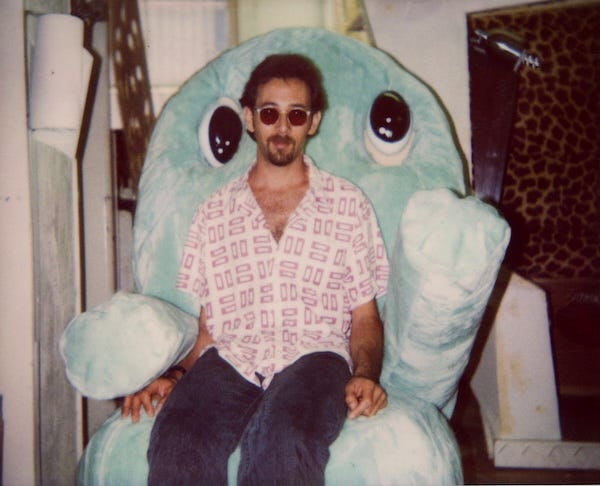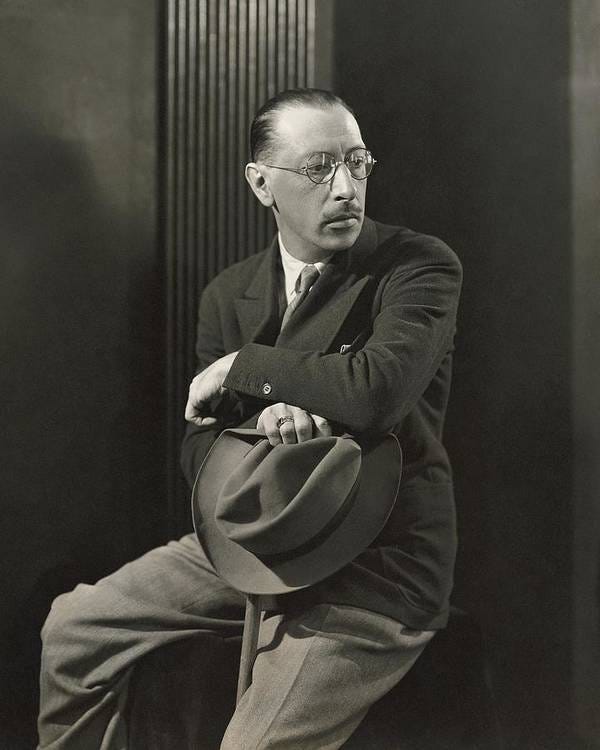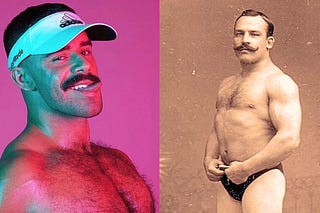
I was 13 when I first became aware of Pee-wee Herman. Not just as the cartoonish man-child character in a gray suit and red bow tie, but as something eerily close to home.
Pee-wee’s Big Adventure made me laugh, sure. But it also made me uncomfortable in a way I couldn’t name back then. Something about him and his world felt too familiar.
I didn’t know how to explain it, but I do now: Pee-wee reminded me of me.
I was a closeted gay nerd in the 1980s—funny, theatrical, bossy, and desperate to be liked. Like Reubens, I knew how to perform. How to be “on” whether anyone wanted to see the show or not.
Deep down, I knew the truth: The world had little patience for boys like me.
Pee-wee wasn’t just a goofball. He was campy and controlling, emotional and excessive. Watching him was like looking into a funhouse mirror I didn’t ask for.
So I laughed publicly. And cringed privately. And looked away whenever possible.
That wasn’t easy. Pee-wee Herman was everywhere—from MTV to cereal boxes to Saturday morning commercials. But I kept my distance. It was easier to dismiss him than to wrestle with why he unsettled me.

It wasn’t until I started watching Matt Wolf’s documentary Pee-wee as Himself over the weekend that I allowed myself to look back with more honesty—and more than a little compassion.
The film is a complicated act of posthumous self-curation. Based on archival footage and original interviews with Reubens and many in his inner circles, the documentary feels like it’s constantly trying to figure out where the line between Paul Reubens and Pee-wee Herman is. Ultimately, I’m not sure it succeeds in doing that, but it gives the viewer (me anyway) plenty of room to psychoanalyze and fill in the blanks.
While open about Reubens’ sexuality, his complex relationship with it.
In the early days of his career—before Pee-wee broke into the mainstream—Reubens wasn’t exactly closeted. In fact, interviews and friends from the 1970s and early ’80s paint a portrait of a man who was open, even exuberant, about being queer in the way many artists in alternative comedy and performance art were at the time.
Pee-wee’s original stage show, which debuted at The Groundlings and ran in L.A. theaters, was full of adult humor, subversive innuendo, and overt camp. He played with sexuality constantly—blurring gender roles, toying with kink aesthetics, embodying what we might now call “genderfuck.”
But as Pee-wee Herman became a household brand, Reubens made the conscious decision to go back in the closet. The open homosexuality that had once been part of his charm became a risk. Reubens never came out publicly during his life. He became aggressively private.
In interviews, Reubens dodged questions about his personal life with Pee-wee’s signature evasiveness. Even in private, he avoided labeling himself. He was a master of subtext, but seemingly allergic to disclosure.
Pee-wee as Himself tries to respect this—and yet you can feel the tension in every scene. It’s there in the way Reubens kept trying to control the documentary…and the filmmaker. It’s there in the archival footage, where Reubens is always on, even when the cameras are “off.”
And for queer viewers—especially those of us who grew up feeling like we had to turn parts of ourselves down to be safe, or successful, or loved—that discomfort is familiar. It’s also heartbreaking.
Pee-wee Herman was many things, depending on your point of view: childlike and creepy, hilarious and exhausting, subversive and stereotypical. But above all, he was coded. And queer kids understood the code, even when we couldn’t translate it. That’s why he mattered. And that’s why it stung when Reubens, understandably and painfully, walked away from that early openness and lived his life in a vault.
I guess he had to. Hollywood in the ’80s and ’90s didn’t offer much grace to those who didn’t play by heteronormative rules.
When scandal hit in 1991—his arrest in an adult theater—the response wasn’t just a mild public embarrassment. It was a pop culture moment of moral collapse. For both Paul Reubens, the man, AND for Pee-Wee Herman, the “kids” tv entertainer.
Predictably, Reubens was punished—his career all but destroyed by hyperbolic hypocrites—not just for being sexual but for being other.
And yet, even in retreat, Reubens left a legacy—of queer weirdness, of coded resistance, of absurd joy. Pee-wee went into hibernation, but his fans never gave up hope that the undeniable, uncontainable, and unforgettable talent would reemerge.
Watching Pee-wee as Himself as an adult, I felt something I hadn’t let myself feel at thirteen: empathy. I saw a man trying to navigate a world that didn’t make space for the full complexity of who he was. I saw someone who used art to both hide and reveal. Someone who gave us a character that was silly and subversive—and maybe closer to “himself” than even he wanted to admit.
I still have conflicted feelings. But they’re quieter now. Gentler.
Pee-wee wasn’t perfect. Neither was Reubens. But for those of us who saw ourselves in his weirdness—and flinched—they both offered something more enduring than easy answers: permission to live and let live.
Keep calm and carry on!
Clint 🌈✌️
COLLIDE PRESS is a reader-supported publication.
Please consider becoming a paid subscriber or patron.
Big thanks to all who’ve subscribed and/or supported!
ON THIS DAY = JUNE 17
BIRTHDAYS
1864 = Ruth Fuller Field = American writer 🌈
1880 = Carl Van Vechten = American writer and photographer 🌈
1882 = Igor Stravinsky = Russian composer and conductor 🌈
1883 = Mauritz Stiller = Finnish director 🌈
1898 = M. C. Escher = Dutch illustrator
1900 = Evelyn Irons = Scottish journalist and war correspondent 🌈
1927 = Wally Wood = American author, illustrator, and publisher
1931 = John Baldessari = American painter and illustrator
1936 = Ken Loach = English filmmaker
1937 = Clodovil Hernandes = Brazilian designer and politician 🌈
1943 = Barry Manilow = American singer-songwriter and producer 🌈
1951 = Joe Piscopo = American actor, comedian, and screenwriter
1954 = Mark Linn-Baker = American actor and director
1957 = Phyllida Lloyd = English director 🌈
1958 = Bobby Farrelly = American filmmaker
1960 = Thomas Haden Church = American actor
1963 = Greg Kinnear = American actor, tv host, and producer
1966 = Jason Patric = American actor
1966 = Tory Burch = American fashion designer and philanthropist
1970 = Will Forte = American actor, comedian, and screenwriter
1975 = Joshua Leonard = American actor, director, and screenwriter
1980 = Venus Williams = American tennis player
1986 = Steven Davies = English cricketer 🌈
1987 = Kendrick Lamar = American rapper
EVENTS
1885 = The Statue of Liberty arrives in New York Harbor.
1968 = The pre-Stonewall documentary The Queen is released in theaters.
THE QUEEN (1968)
also available on Hoopla + Kanopy
1972 = Watergate scandal: Five White House operatives are arrested for burgling the offices of the Democratic National Committee.
1994 = Following a televised low-speed chase, O. J. Simpson is arrested for the murders of his ex-wife, Nicole Brown Simpson, and her friend Ronald Goldman.
2006 = An estimated 2.5 million people take to the streets of Sao Paulo to celebrate the city’s 10th annual Gay Pride parade.
HOLIDAYS + OBSERVANCES
PORTRAIT + QUOTES OF THE DAY
“I am in the present. I cannot know what tomorrow will bring forth. I can know only what the truth is for me today. That is what I am called upon to serve, and I serve it in all lucidity.”
Igor Stravinsky
“Money may kindle, but it cannot by itself, and for very long, burn.”
Igor Stravinsky


















This is an interesting write up you did. I think we all have a bit of "Pee Wee" in us!
Cheers
I still need to see this.